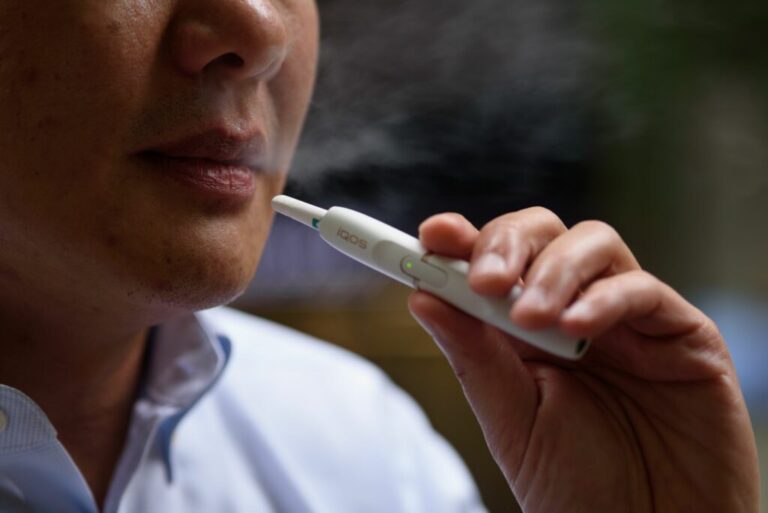Philip Morris International, the world’s largest cigarette maker, is betting its future on smoke-free alternatives that still deliver nicotine to smokers’ lungs but at much lower temperatures than burnt cigarettes. The research suggests that high burning temperatures do most of the harm.
In other words, it is saying goodbye to cigarettes.
ADVERTISEMENT
CONTINUE READING BELOW
Is the company planning corporate suicide? Far from it. Last year, Jacek Olczak, CEO of Philip Morris International, boldly declared that “cigarettes belong in museums”.
Read: The path to a smoke-free SA: Follow the Swedish model
Diehard smokers might roll their eyes at what looks like a fawning nod to corporate wokeism, but the commercial rationale appears solid enough. Some 40% of the company’s gross profit is now generated through smoke-free alternatives, and 21 million users have quit cigarettes altogether in favour of these less risky alternatives.
Sweden is considered effectively smoke-free, with a smoking prevalence rate below 5%, while smoke-free alternatives in Japan now account for more than 40% of the traditional cigarette market. In Korea, it is up to 25%.
Illicit cigarettes
Social pressure and tougher legislation have hounded smokers out of bars, restaurants and public spaces. However, there are still reckoned to be one billion smokers worldwide, and an estimated 30% of adults in SA are smokers. This figure has increased in recent years, partly because of the five-month ban on cigarette sales during Covid in 2020 that gifted the market to counterfeiters and smugglers.
It is reckoned that up to 70% of all cigarettes sold in SA are illicit, a potential loss of R20 billion annually to the fiscus.
That ripped jumbo-sized holes in the market shares of leading producers Philip Morris and British American Tobacco (BAT), displacing favoured brands like Marlboro in favour of cut-priced brands like RG, made by Gold Leaf Tobacco.
Low-cost brands retail for R25 for a packet of 20, and less in some cases, which means no excise is being paid on these products. These illicit cigarettes are available across the country, making it dirt cheap for smokers to feed their addiction.
Read: Illicit trade is sucking R100bn a year out of SA
One solution the industry proposes is a minimum charge for a packet of cigarettes, which would hopefully stamp out products selling for less than R21, roughly equivalent to the excise payable on a packet of 20.
For that, we can thank Nkosazana Dlamini-Zuma, former minister of Cooperative Governance and Traditional Affairs, whose 2020 cigarette ban gifted the market to black marketeers but did nothing to curtail smoking.
Heated tobacco products
SA is a tiny market for Philip Morris. The company admits a slow South African takeup in its heated tobacco products, sold under the brand names Heets and now IQOS Iluma, launched earlier this month.
The company has spent years and $12.8 billion researching safer ways for smokers to get their nicotine fix in ways that do not require furnace core temperatures to get the job done.
No one is claiming the new alternatives are healthy, but they certainly seem less risky to human health, based on research by Philip Morris and others.
The company recently launched its latest generation of heated tobacco products that burn at about 350 degrees instead of 900 degrees for normal cigarettes, eliminating up to 90% of the constituents that potentially cause harm to the lungs.
ADVERTISEMENT
CONTINUE READING BELOW
Most heated tobacco products are handheld electronic devices with temperature controls. The exact temperature to which the tobacco is heated varies from product to product, but they avoid reaching high enough temperatures at which the tobacco would burn, says Philip Morris.
Read: Vaping may help tens of thousands quit smoking, UK study shows
The smoking experience mimics some of the behavioural aspects of regular cigarettes, especially the nicotine infusion that smokers crave but emits vapour rather than smoke.
Tobacco bill
All this comes at a time when the Tobacco Products and Electronic Delivery Systems Control Bill (the tobacco bill) is up for discussion. The proposed bill faces strong backlash from the industry for making little or no distinction between cigarettes and less harmful alternatives.
As currently worded, a doctor recommending a smoke-free product as an alternative to cigarettes would face stiff penalties. So too would a Philip Morris or BAT executive handing out a business card.
The bill will require retailers to hide their cigarette displays from public eyes, manufacturers will be forced to sell cigarettes in plain packets, and smoking in public places and indoors will be banned, as will online sales.
Read:
Backlash against new tobacco bill gets white hot
Tobacco bill can’t wait any longer, health professionals say
Philip Morris SA director for external affairs Neetesh Ramjee says the government appears to have a better understanding of the different risk profiles of nicotine-based products. Vaping organisations have likewise challenged the blanket approach to regulation, ignoring the evidence that vaping has helped many quit smoking altogether.
Philip Morris wants to be able to talk freely and honestly about the smoke-free alternatives and not have them lumped into the same health risk pot as cigarettes.
Read:
Sin tax on vaping products will trigger black market
South Africa’s new vaping tax won’t deter young smokers
Why a risk-based approach may be the best way to tax e-cigarettes
Public health commentator Clive Bates disputes the World Health Organisation’s claim that e-cigarettes are “harmful to health and are not safe” while it simultaneously admits not enough is known about the long-term impacts of these products. Bates says nicotine, though addictive, is not particularly harmful on its own. The real harm comes from the toxic gases from burned cigarettes inhaled into the lungs.
“While the best option for anyone is to quit tobacco and nicotine products completely, the reality is that many don’t,” says Philip Morris vice-president for sub-Saharan Africa, Branislav Bibic. “This is why we offer alternative products to adult smokers that are a better choice than continued smoking.”

